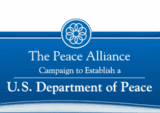The terminology keeps changing. Deep integration is now ‘plug and play interoperability’. But changing the words will not change the odious Security and Prosperity Partnership.
Alison over at Creekside has an excellent post about this:
A year ago the U.S. Department of Homeland Security gave Arizona State University $15 million to establish a Center of Excellence for Border Security and Immigration. The border security research centre is led by Rick Van Schoik, director of ASU’s North American Center for Transborder Studies.
Arizona State U presser, Feb. 2008 :
“The establishment of the center by the U.S. Department of Homeland Security follows more than two years of work assembling a team of U.S. universities, Mexican and Canadian institutions, government agencies, technology companies and national laboratories.[…]
Read rest of Alison’s post here.
Also linked: CathiefromCanada: “Plug and play interoperability”
For SPP watch articles, visit the Council of Canadians Integrate This! website:
September 26, 2008
Posted by Andrea HardenPresident Bush met with leaders and officials from 11 countries in the Western Hemisphere on Wednesday, September 24th in New York to launch the ‘Pathways to Prosperity in the Americas’ initiative. Canada is joined by the U.S., Chile, Colombia, Costa Rica, the Dominican Republic, El Salvador, Guatemala, Honduras, Mexico, Panama and Peru in this initiative. All have free trade agreements with the U.S., or one pending before Congress. In a Washington Post article, Bush hails the initiative as, “a forum where leaders can work to ensure that the benefits of trade are broadly shared.” (more…)
CIP Americas Program: Armoring NAFTA: The Battleground for Mexico’s Future
Excerpt:
In April 2007, on the eve of the North American Trilateral Summit, Thomas Shannon, the U.S. assistant secretary of state for western hemisphere affairs, described the SPP’s purpose with remarkable candor: The SPP, he declared, “understands North America as a shared economic space,” one that “we need to protect,” not only on the border but “more broadly throughout North America” through improved “security cooperation.” He added: “To a certain extent, we’re armoring NAFTA.”2
Mexicans and other Latin Americans have learned that adopting the U.S.-promoted neoliberal economic model—with its economic displacement and social cutbacks—comes with a necessary degree of force, but this was the first time that a U.S. official had stated outright that regional security was no longer focused on keeping the citizens of the United States, Canada, and Mexico safe from harm, but was now about protecting a regional economic model. Of course, Shannon didn’t list political opposition as one of the threats to be countered; he simply argued that the new “economic space” needed to be protected against “the threat of terrorism and against a threat of natural disasters and environmental and ecological disasters.” But the counter-terrorism/drug-war model elaborated in the SPP and embodied later in Plan Mexico (known officially as the Merida Initiative) encourages a crackdown on grassroots dissent to assure that no force, domestic or foreign, effectively questions the future of the system.
[… Read more]



 Posted by verbena19
Posted by verbena19 





































![Campaign for Innocent Victims In Conflict[CIVIC] CIVIC](http://i160.photobucket.com/albums/t193/Annamarie_033/CIVIClogo.gif)








![British daily newspaper Daily Mail [UK]](http://i160.photobucket.com/albums/t193/Annamarie_033/mHead2.gif)





































































































































You must be logged in to post a comment.